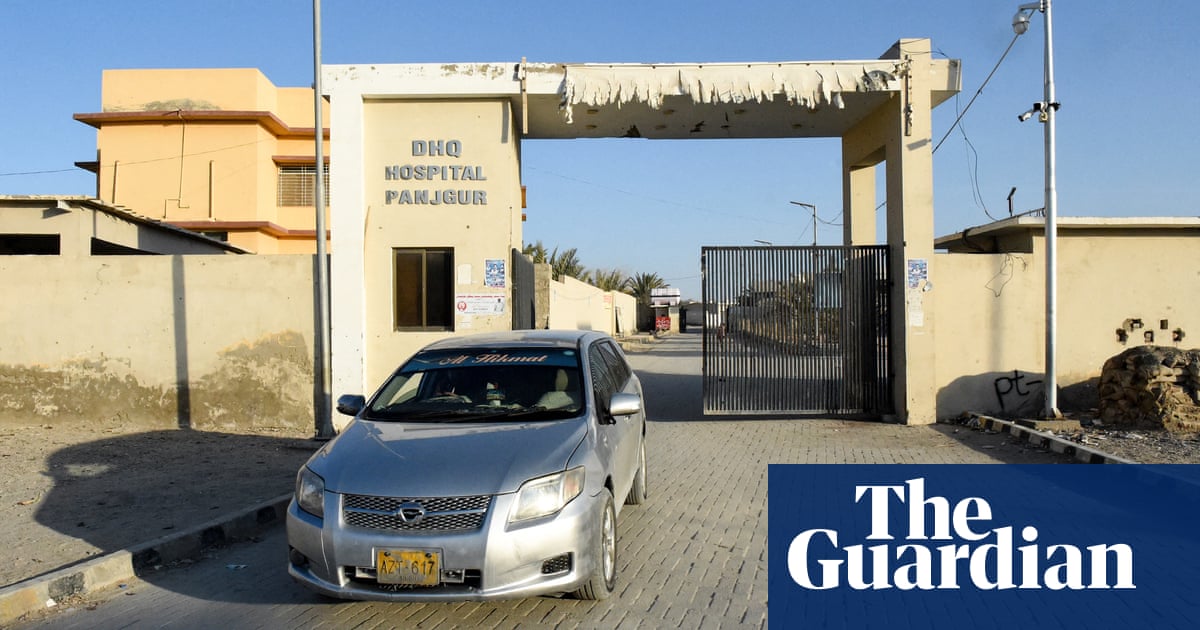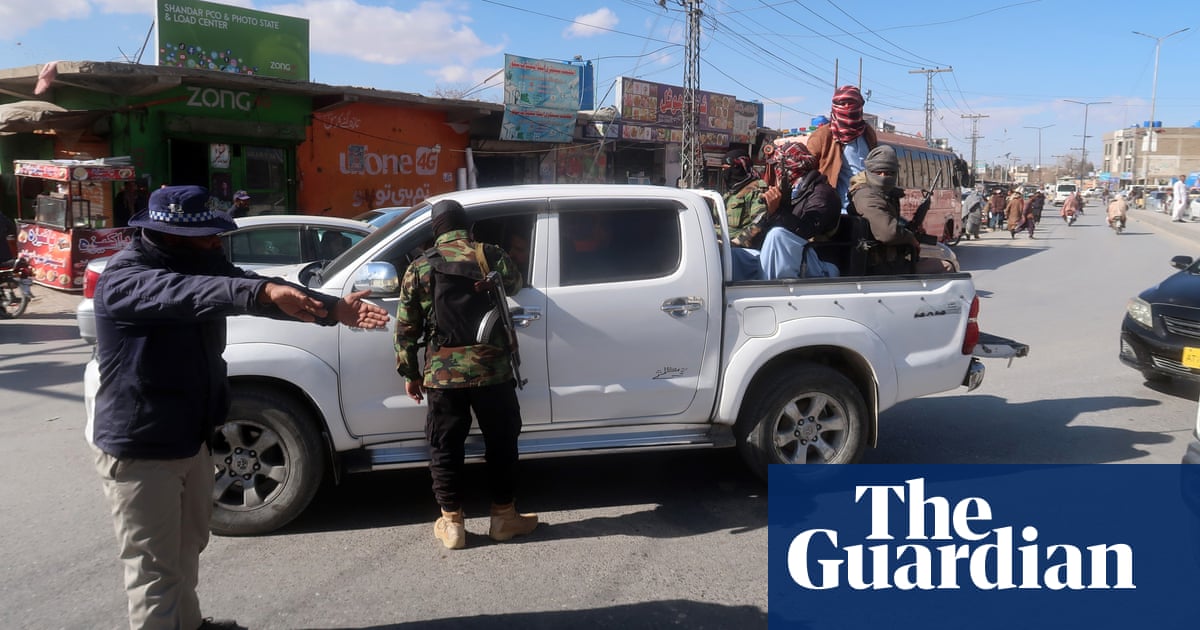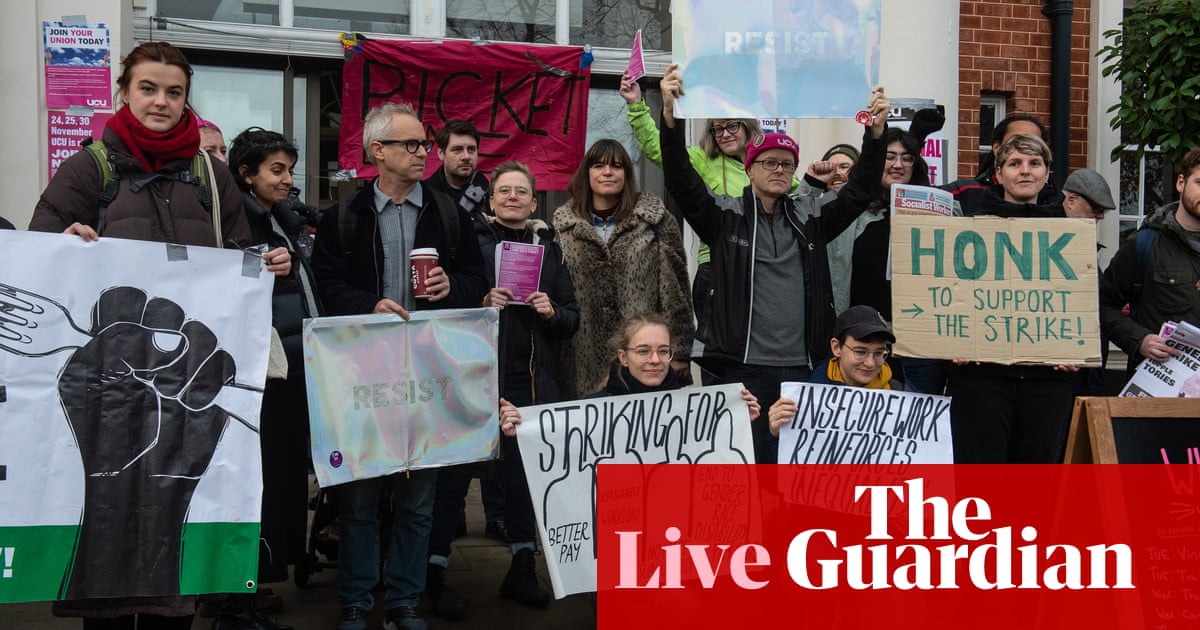
Iranian military officials were hailing one of the biggest projections of force in its recent history as Pakistan warned Tehran of “serious consequences” to a “completely unacceptable” attack in Pakistan’s Balochistan that left six dead or injured including two children.
Iran said its attack mounted on Tuesday using “precision missile and drone strikes”, destroyed two strongholds of the Sunni militant group Jaish al-Adl in the Koh-e-Sabz area of Pakistan’s south-west Balochistan province.
The missile strikes were part of Iran’s sweeping reprisals across Syria, Iraqi Kurdistan and Pakistan, designed to exact revenge for a suicide bombing mounted by Isis-K, the Afghan branch of Islamic State, that killed 85 Iranians in the south-eastern city of Kerman on 3 January.
Iran claims that Israeli intelligence has been working with Isis-K, but the geographic breadth of the Iranian response adds to the fears of a further escalation of violence throughout the region sparked by the 7 October attacks by Hamas and Israel’s bombardment in Gaza.
Seeking to pre-empt criticism that it had violated Pakistan’s sovereignty, Iran said the attacks on terrorists were no different from the kind of assassination operations mounted by the US across the Middle East and Asia. Iran’s president, Ebrahim Raisi, said “there is no more important issue for Iran than its security”.
Iran’s foreign minister, Hossein Amir-Abdollahian, who is in Davos, Switzerland, for the World Economic Forum, said it was Washington’s full support for Tel Aviv that is the “main root of insecurity in the region”.
He said Iran’s recent actions were in self-defence, but the Kurdish prime minister, Masrour Barzani, cancelled a planned meeting with Amir-Abdollahian in Davos after Iran’s strike on what Tehran said was an Israeli “espionage headquarters” in Erbil in Iraq’s semi-autonomous Kurdistan region. The Kurdistan Regional Government has categorically rejected the allegation that Israeli intelligence were present.
Tuesday’s strike into Pakistan was the first time Iran had struck so severely inside the nation’s sovereign territory. Ironically, the strike came as Pakistan and Iran’s naval forces were in the midst of a joint exercise designed to underscore the close security cooperation between the two countries.
Pakistan recalled its ambassador from Iran on Wednesday, with the foreign ministry describing the airstrike as an “unprovoked violation of its airspace by Iran … inside Pakistani territory”.
“It is even more concerning that this illegal act has taken place despite the existence of several channels of communication between Pakistan and Iran,” the ministry said.
The Iranian charge d’affairs was summoned to give an explanation.
China’s foreign ministry urged Islamabad and Tehran to “exercise restraint, avoid actions that would lead to an escalation of tension and work together to maintain peace and stability”.
The Jaish al-Adl militant Sunni group said Iran’s Revolutionary Guards had used six attack drones and a number of rockets to destroy two houses where the children and wives of its fighters lived. The Sunni group had previously claimed responsibility for an attack on a police station in the city of Rask in Iran’s Sistan and Balochistan province on 15 December. The attack left 12 Iranian police officers dead. On Wednesday, a former Islamic Revolutionary Guards Corps officer was reportedly abducted and shot dead in an apparent act of retaliation.
Authorities in Pakistan’s Balochistan province said the Iranian raids had killed two girls and injured at least four others. The girls, aged eight and 12, were killed in houses that were damaged in the attack in the village of Koh-e-Sabz in Kulag, about 37 miles (60km) from Panjgur district, on Tuesday evening, according to the district’s deputy commissioner, Mumtaz Khetran.
In Tehran, Islamic Revolutionary Guards Corps (IRGC) also hailed Iran’s revenge raids on Monday night in Ebril and in Idlib, Syria. The attacks in Syria were both directed at Islamic State in revenge for the Kerman bombing, and for the assassination in December of Sayyed Razi Mousavi, one of the top IRGC commanders in Syria just outside Damascus.
Senior Iranian commentators were hailing the breadth and scale of the Iranian response as marking a move away from the Iranian policy of “strategic patience”, and taking Iran closer to a direct confrontation with Israel and the US, not just in the Middle East. The official line however remains one of not seeking escalation.
Vali Nasr, professor of international relations at Johns Hopkins University, said: “Iran and Hezbollah do not want Israel and the US to dictate the pace of the Gaza war, for Israel to finish Gaza on its own schedule and then decide what they are going to do with Hezbollah and then the Houthis and to decide what is the end game. Iran and Hezbollah want to deny Israel and the US a chance to dictate the new order that is going to emerge in the Middle East and they are opening as many fronts at the same time to deny them that capability.”
IRGC commanders claimed on Tuesday that “advanced equipment” was destroyed during the ballistic missiles attack on Erbil the previous night, which claimed the lives of at least four civilians, and wounded 17 others.
Amir Ali Hajizadeh, IRGC’s air force commander, told Iran’s semi-official Tasnim news agency on Tuesday after the attacks that while the targeted area in Erbil “outwardly looked like a villa”, it was allegedly revealed that it was “a concrete fortress used for espionage” and what he referred to as “special terrorist operations”.
Hajizadeh added: “Advanced equipment in the two-storey underground facility and the elements that needed to be eliminated were indeed eliminated.”
Iraq’s national security adviser, Qasim al-Araji, stated on Tuesday on X: “The claims that a Mossad headquarter was targeted [in the attack] are baseless.” Iraqi national security officials were mounting an investigation into the attack, and the Iraqi foreign minister, Fuad Hussein, said the people of Iraq were paying the price for tensions between Washington and Tehran.
Iraq said a key target appeared to be the home of a successful Kurdish businessman, Peshraw Dizayee, the owner of Falcon Group which runs big projects such as Empire World, a private real estate development company.
Apart from Dizayee, the strike’s victims include his 11-month-old daughter, Zhina, a housekeeper and the Iraqi businessman Karam Mikhail, who was visiting his Kurdish friend. Dizayee’s older son, Roj, 25, lost a hand in the strike. Rawan, his other son, is slightly injured.
Iraq said it had formally launched a complaint with the UN security council.
The IRGC also said the attack on targets in Idlib involved the longest range strike it had ever mounted adding the missiles covered 1,200 miles. There were reports that one of the buildings struck was empty and Iran may have been acting on outdated intelligence.
Iran claimed operatives that are part of “Isis Khorasan” are trained in this area and are then transferred by the US to Afghanistan to infiltrate Iran for terrorist activities. It also alleges that Israel maintains covert bases in Azerbaijan to create dissent against Iran.












